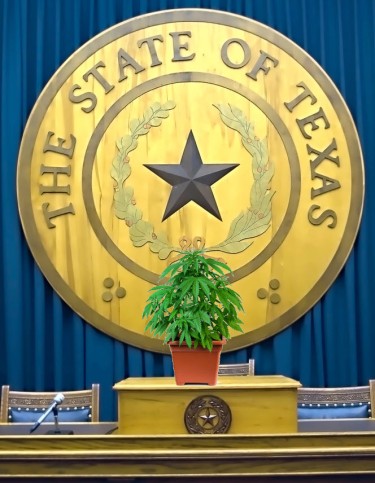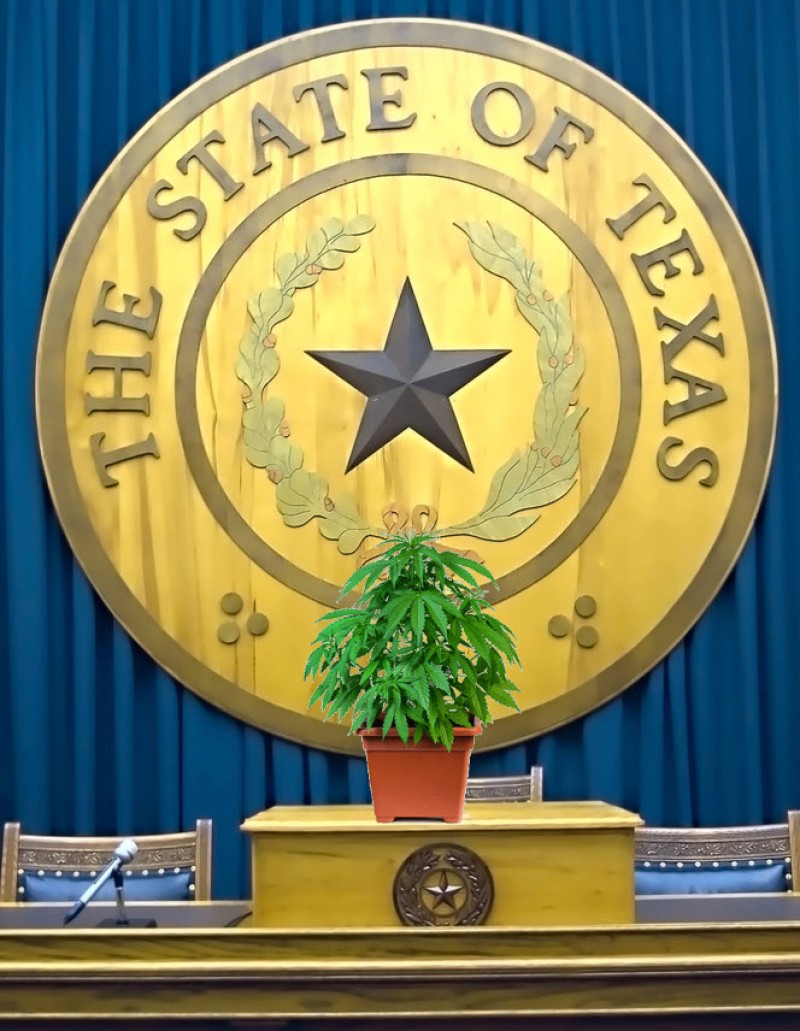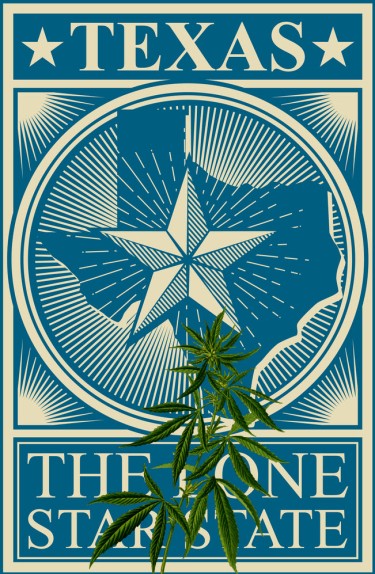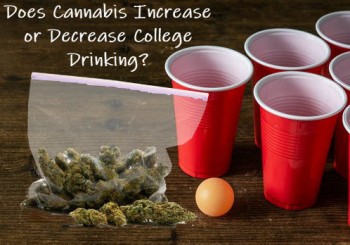
Abbott's Surprising THC Veto: A Lesson in Political Reality vs. Prohibition Fantasy
In what can only be described as one of the most shocking plot twists in Texas politics this year, Governor Greg Abbott delivered a devastating blow to prohibition forces by vetoing Senate Bill 3 - the draconian legislation that would have banned virtually all THC products in the state. This wasn't just any veto; this was a complete repudiation of his own lieutenant governor's top legislative priority, delivered at 11:22 PM on a Sunday night like a political assassination carried out in the shadows.
Lt. Governor Dan Patrick's reaction was pure political theater gold. During his Monday press conference, a visibly frustrated Patrick didn't just express disappointment - he essentially accused Abbott of secretly supporting recreational marijuana legalization. "The governor of the State of Texas wants to legalize recreational marijuana in Texas. That's the headline, folks," Patrick declared, sounding more like a conspiracy theorist than a seasoned politician.
But here's the thing: Abbott's veto wasn't about some secret cannabis agenda. It was about cold, hard political and economic reality crashing headfirst into prohibition fantasy. When an industry employs 53,000 Texans and generates $4.3 billion in annual sales, even the most conservative politicians start paying attention to the math. Abbott saw what I predicted months ago - that SB3 would hand this massive market directly to Mexican and Chinese cartels while destroying thousands of legitimate Texas jobs.
The governor's official reasoning focused on constitutional concerns and legal challenges, noting that a similar Arkansas ban had been successfully challenged in federal court. But reading between the lines, Abbott clearly recognized that SB3 was political suicide disguised as child protection. When over 150,000 Texans sign a petition opposing your legislation, and polling shows that even 44% of Republicans oppose a complete ban, smart politicians start reconsidering their positions.
This veto represents more than just a victory for the Texas hemp industry - it's a watershed moment that demonstrates how prohibition politics are increasingly colliding with economic and political reality. The question now is whether the upcoming special session will produce sensible regulation or if Patrick will double down on his failed prohibition crusade.
From Prohibition Victory to Political Reality Check
Just months ago, I wrote about how SB3 represented "Texas' Gift to the Cartels" - a catastrophic piece of legislation that would eliminate legal competition and hand an $8 billion market directly to criminal organizations. At the time, the bill seemed destined to become law, having passed both chambers with solid Republican majorities. Lt. Governor Patrick was riding high, claiming victory in his crusade against "life-threatening, unregulated forms" of THC.
The political momentum seemed unstoppable. SB3 had passed the House 87-54 and the Senate 25-6, mostly along party lines. Patrick characterized the legislation as essential for protecting children and adults from dangerous cannabis products, framing legal hemp businesses as exploitative operations targeting minors. The moral panic rhetoric was in full swing, with supporters painting THC vendors as drug dealers masquerading as legitimate businesses.
But even as SB3 advanced through the legislature, cracks were appearing in the prohibition facade. Over 170 people signed up to testify against the bill in March, representing a diverse coalition of veterans, patients, business owners, and advocates. The Texas Hemp Business Council mobilized an unprecedented grassroots campaign, collecting over 150,000 signatures on their petition and delivering thousands of letters to Abbott's office.
More importantly, the economic arguments against SB3 were becoming impossible to ignore. The hemp industry had grown from a legal loophole into a massive economic force, employing tens of thousands of Texans and generating billions in sales and tax revenue. Unlike the stereotypical "head shops" of prohibition propaganda, these were legitimate retail businesses operating in strip malls and shopping centers across the state, serving primarily adult customers seeking alternatives to alcohol or prescription drugs.
The veterans' voices proved particularly powerful in Texas politics. Combat veterans like John Burk from Shell Shock CBD in Richardson provided compelling testimony about using THC instead of addictive opioids to manage service-related injuries and PTSD. Burk's simple question - "If we want to have a blunt, it's no different than having an old-fashioned [drink] and kicking back" - cut through the moral panic rhetoric with basic common sense.
Patrick's claims about targeting children also started falling apart under scrutiny. The regulated hemp industry already operated under existing age restrictions and advertising guidelines. Meanwhile, SB3 would eliminate these safeguards entirely by forcing all THC sales into the black market, where dealers don't check IDs or follow any regulations whatsoever.
Abbott's silence during the legislative process became increasingly conspicuous as opposition mounted. While Patrick championed SB3 as his top priority, the governor remained notably absent from the debate. Political observers began speculating about potential tensions between the two Republican leaders, particularly as Abbott faced pressure from business groups concerned about the economic impact.
The federal legal landscape also worked against SB3. Abbott specifically cited Arkansas' failed attempt to ban similar products, noting that the Arkansas legislation had been "challenged successfully by the federal courts." This wasn't just legal caution - it was acknowledgment that broad THC bans face serious constitutional challenges related to interstate commerce and federal hemp laws.
Survey data from a Trump-aligned pollster revealed another inconvenient truth for SB3 supporters: while most Texans wanted stricter THC regulations, a large majority opposed an outright ban. Even among Republicans, 44% opposed prohibition. This polling data suggested that SB3 was politically toxic, not politically beneficial.
By the time Abbott delivered his Sunday night veto, the political calculation had become clear. Supporting SB3 meant destroying a major Texas industry, handing billions to cartels, criminalizing veterans and patients, facing costly legal challenges, and taking a position opposed by nearly half of his own party's voters. The governor chose economic reality over prohibition fantasy.
Decoding Abbott's Special Session Strategy
Abbott's veto came with a crucial caveat: he announced plans for a special legislative session beginning July 21st "to craft a law that does as much as possible to corral the problems while also being structured so that it can go into effect this year." This isn't capitulation to the hemp industry - it's a sophisticated political strategy that attempts to thread the needle between prohibition demands and economic reality.
The governor's proclamation following the veto reveals his thinking: "If I were to allow Senate Bill 3 to become law, its enforcement would be enjoined for years, leaving existing abuses unaddressed. Texas cannot afford to wait." Abbott is essentially arguing that SB3 was so legally problematic it would have been tied up in federal court indefinitely, providing no actual regulation while the legal challenges played out.
The special session framework allows Abbott to control the agenda and timeline in ways that weren't possible during the regular legislative session. By calling lawmakers back for a focused discussion on THC regulation, he can push for compromise legislation that addresses legitimate concerns without destroying the entire industry. This approach also demonstrates leadership initiative rather than passive resistance to Patrick's agenda.
Based on Abbott's references to the Arkansas model and his emphasis on "reasonable regulation," the special session will likely focus on several key areas. Age restrictions and advertising limitations will probably be strengthened, with stricter enforcement mechanisms and clearer penalties for violations. Product potency limits may be implemented, similar to regulations in other states that cap THC content in hemp-derived products.
Testing and labeling requirements will almost certainly be enhanced. Abbott can argue that better regulation serves public safety more effectively than prohibition, ensuring that consumers know exactly what they're purchasing and that products meet safety standards. This regulatory approach appeals to both industry stakeholders and concerned parents.
Local control provisions may also be included, allowing cities and counties to impose additional restrictions or opt out of THC sales entirely. This approach has worked in alcohol regulation and could provide political cover for legislators from conservative districts while preserving market access in areas where voters support it.
The taxation angle represents another likely focus. Abbott could propose specific taxes on THC products that generate revenue for drug education, mental health services, or other programs that address legitimate concerns about cannabis use. This approach transforms THC from a perceived problem into a funding solution for related issues.
Patrick's response to the special session announcement suggests he's not entirely opposed to compromise. While clearly frustrated by Abbott's veto, the lieutenant governor indicated willingness to work together on new legislation. This pragmatic approach suggests that even prohibition hardliners recognize the political realities at play.
The July timeframe also works in Abbott's favor. Summer special sessions typically receive less media attention and public scrutiny, allowing for more productive negotiations away from the partisan circus that often characterizes regular legislative sessions. Industry stakeholders and advocacy groups will have time to prepare comprehensive proposals that address legitimate regulatory concerns.
However, the special session also creates risks for the hemp industry. Patrick and other prohibition supporters will use the additional time to organize opposition and craft messaging around child safety and public health. They may propose compromise legislation that appears reasonable but actually contains poison pills designed to cripple the industry over time.
The key question for the special session is whether Abbott will propose specific legislation or simply provide a framework for lawmakers to negotiate. His reference to crafting "a law that does as much as possible to corral the problems" suggests he has specific ideas about what reasonable regulation should look like, potentially giving him significant influence over the final outcome.
Why This Matters Beyond Texas
Abbott's veto represents far more than a single state's hemp policy - it's a crucial data point in the ongoing national debate over cannabis prohibition versus regulation. When one of the most conservative governors in America chooses economic reality over prohibition ideology, it sends shockwaves through the entire anti-cannabis movement.
The Texas hemp industry's $4.3 billion economic impact and 53,000 jobs represent exactly the kind of numbers that force politicians to reconsider their positions. These aren't abstract policy debates about drug scheduling or medical research - they're concrete economic consequences affecting real families and communities. When prohibition threatens this level of economic activity, even conservative Republicans start questioning whether the cure might be worse than the disease.
The federal implications are equally significant. Texas' hemp industry exists because of the 2018 Farm Bill's hemp legalization and the legal loophole it created for hemp-derived THC products. Abbott's veto essentially validates the federal framework and acknowledges that states can't simply ignore interstate commerce considerations when regulating hemp products.
This validation matters enormously for the broader cannabis reform movement. If Texas - arguably the most prohibition-friendly large state in the country - can't successfully ban hemp-derived THC products, what does that say about prohibition's viability elsewhere? Other conservative states considering similar bans will now have to contend with the Texas precedent and the economic arguments it represents.
The polling data showing Republican opposition to THC bans also reveals changing attitudes within the conservative coalition. When 44% of Texas Republicans oppose prohibition, it suggests that traditional drug war messaging is losing effectiveness even among the party's base. This shift creates opportunities for reform advocates to build bipartisan coalitions around regulation rather than prohibition.
Patrick's accusation that Abbott "wants to legalize recreational marijuana" inadvertently highlights another crucial point: the line between hemp-derived THC and traditional cannabis is becoming increasingly blurred. If hemp-derived delta-8 and delta-9 products can produce similar effects to traditional marijuana, what's the logical justification for treating them differently? Abbott's veto implicitly acknowledges this reality.
The veterans' advocacy component of the Texas fight also has national implications. When combat veterans publicly argue that THC products help them avoid dangerous opioids, it becomes much harder for politicians to maintain that all cannabis use is inherently harmful. The opioid crisis has created openings for cannabis advocates that didn't exist during previous prohibition debates.
Most importantly, the Texas experience demonstrates that prohibition politics are increasingly colliding with economic and political reality. The hemp industry's rapid growth and mainstream acceptance have created stakeholders who won't quietly accept prohibition. These businesses have employees, customers, investors, and communities that depend on their continued operation.
This stakeholder dynamic fundamentally changes the politics of cannabis prohibition. It's one thing to ban a theoretical threat; it's entirely different to destroy an existing industry that employs thousands of people and generates billions in economic activity. Abbott recognized this reality in ways that Patrick apparently couldn't or wouldn't.
The special session outcome will provide crucial insight into whether compromise and regulation can replace prohibition as the conservative approach to cannabis policy. If Abbott succeeds in crafting reasonable regulations that address legitimate concerns while preserving the industry, it could provide a model for other conservative states facing similar pressures.
The Sticky Bottom Line: Prohibition's Last Gasps
Abbott's veto of SB3 marks a turning point in the cannabis prohibition debate that extends far beyond Texas borders. When one of America's most conservative governors chooses economic reality over prohibition ideology, it signals that the old drug war playbook is losing effectiveness even among traditional supporters.
Patrick's frustrated accusation that Abbott secretly supports recreational marijuana reveals the binary thinking that's crippling prohibition advocates. In their worldview, you either support total prohibition or you're a secret legalization advocate. They can't comprehend that rational politicians might choose regulation over prohibition based on evidence rather than ideology.
But Abbott's decision wasn't about cannabis politics - it was about basic governance competence. Faced with a choice between destroying a major Texas industry or finding reasonable regulations that address legitimate concerns, he chose the pragmatic path over ideological purity. This kind of evidence-based decision-making terrifies prohibition advocates because it exposes the fundamental weakness of their position.
The economic arguments that swayed Abbott aren't unique to Texas. Hemp-derived THC products are generating similar economic activity across the country, creating stakeholders who won't accept prohibition quietly. As these industries mature and become more integrated into local economies, the political cost of prohibition continues rising while the benefits remain elusive.
The special session represents an opportunity to demonstrate that regulation works better than prohibition for protecting public health and safety. If Abbott succeeds in crafting sensible regulations that preserve the industry while addressing legitimate concerns, it could provide a template for other states and even federal policy.
However, the broader lesson extends beyond cannabis policy to drug policy generally. Prohibition advocates are increasingly forced to confront the gap between their rhetoric and reality. They can claim that cannabis products are dangerous, but they can't explain why regulated products should be banned while alcohol remains legal. They can argue about protecting children, but they can't explain why eliminating age verification makes children safer.
This cognitive dissonance is becoming impossible to maintain as more states legalize cannabis and the sky fails to fall. Abbott's veto suggests that even conservative politicians are recognizing that prohibition causes more problems than it solves.
The fight isn't over - Patrick and other prohibition hardliners will continue pushing for restrictions that could cripple the hemp industry through regulatory sabotage rather than outright bans. But Abbott's veto demonstrates that prohibition politics are increasingly colliding with economic and political reality.
For cannabis advocates, the Texas experience provides a crucial lesson: economic arguments often succeed where moral arguments fail. When prohibition threatens jobs, tax revenue, and economic development, politicians start questioning their positions regardless of their ideological preferences.
The path forward requires continued organizing, coalition building, and strategic thinking. But Abbott's surprising veto proves that even in the most conservative states, prohibition advocates are losing ground to the basic reality that regulation works better than criminalization. The question isn't whether cannabis prohibition will end - it's how quickly and with how much collateral damage along the way.






